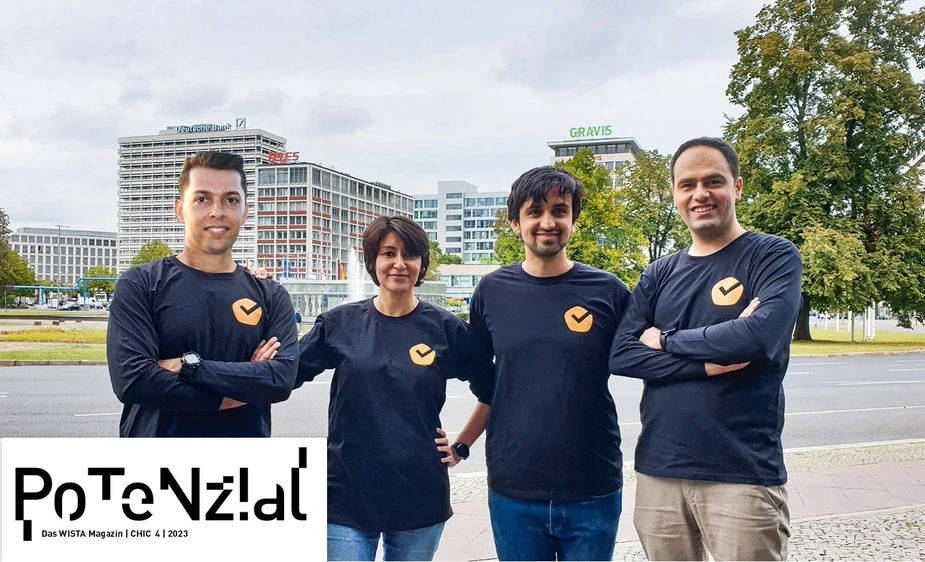Predictive maintenance for rail transport
The team of the start-up PANTOhealth wants to increase reliability and punctuality of rail traffic
Rail is considered the most environmentally friendly form of public transport. But it, too, has its problems. Delays and cancellations are two of them. One reason for why they happen is unscheduled maintenance on the infrastructure.
“We want to increase reliability and punctuality of rail traffic, says Mina Kolagar. To do so, she founded PANTOhealth, a Berlin-based start-up aimed at predictive maintenance services for rail companies, together with Farzad Vesali, Morteza Nokhodian and Amir Bashari in 2020. “Take overhead lines for example. They are an important part of the infrastructure,” explains Kolagar. “They are under high voltage. For maintenance work, they must be shut down and the tracks must be closed off for two to three kilometres.” The challenge: Nobody knows when a problem will occur. PANTOhealth now wants to equip trains with sensors to counteract this. They record the vibrations of the pantographs while they glide over the overhead line. Using machine learning, the system can predict which section of the line will most likely require maintenance in the near future.
“The history of PANTOhealth cannot be viewed separately from our own history of migration,” says Kolagar. “It hails back to 2016 when Farzad and I were guest researchers in Germany.” Mina Kolagar studied power systems engineering in Leipzig and Farzad Vesali mechanical engineering and rail transport systems at Technische Universität Berlin. “Our universities in Iran are very much focused on theory. In Germany, they are good at working together with the industry.” Since both of them wanted their research to be utilised in practice, they enjoyed having this experience. Her business partner, she tells us, was also the one to present the results of his dissertation to a group of experts from the industry. It dealt with the interaction of pantographs and overhead lines. And with the simulations how the infrastructure reacts to the speed of passing trains. “The maintenance workers of rail companies need to know as precisely as possible when facilities like overhead lines must be serviced,” explains Kolagar. Vesalis’ research was one of the keys to do this. When he successfully completed his doctorate in 2019, they focused all their attention on this idea. A year later, PANTOhealth was born.
It wasn’t always easy, says Kolagar, looking back. “Our entire founding team had immigrated to Germany. There was so much that was new,” she says. “Learning the language. Understanding the culture. The business culture, too. These were all personal challenges.” The industry that the young team had to navigate was also not stingy when it came to challenges. “The railway industry has its own, very strict standards. Every product must be impeccable. If there is a problem, it creates a risk for people’s lives.” In reverse, this means that innovative approaches like predictive maintenance must prove their worth before they are given a chance. “This prolongs product development. The sales cycle grows and, with it, the business risk.” Help comes in the form of the first devices for data capturing that are currently used in Germany and Belgium.
Based at Charlottenburg Innovation Centre (CHIC), the company was already able to convince the jury of the Berlin Business Award. In August 2022, it won the award for newcomer of the year. “I will never forget when the winners were announced,” says Kolagar. “At that exact moment, I knew that Berlin was the right decision. It’s a city that is open to new ideas. It doesn’t matter where you come from or which industry. It was heartwarming.”
Kai Dürfeld for POTENZIAL
